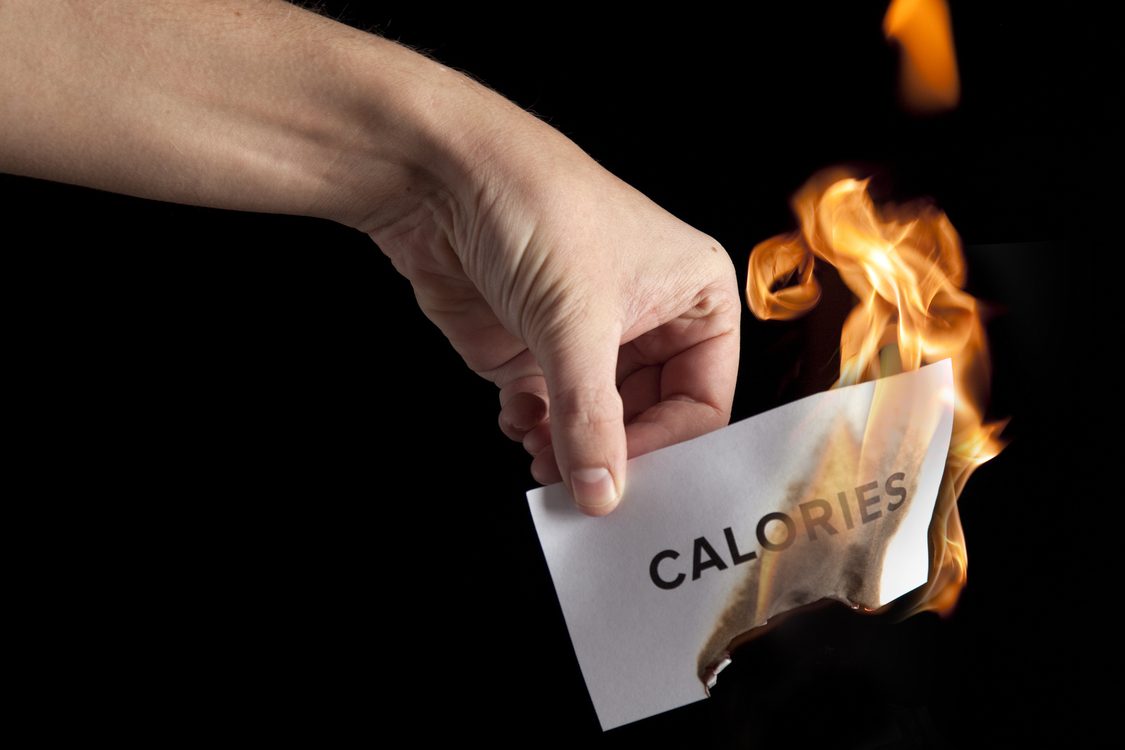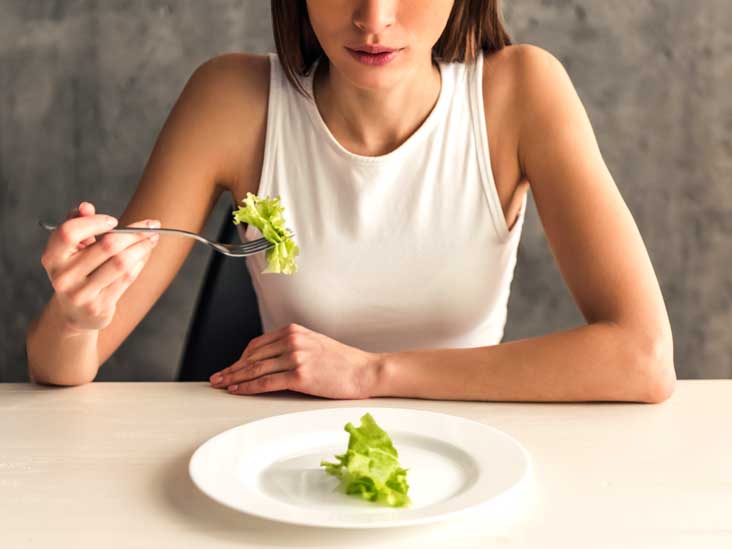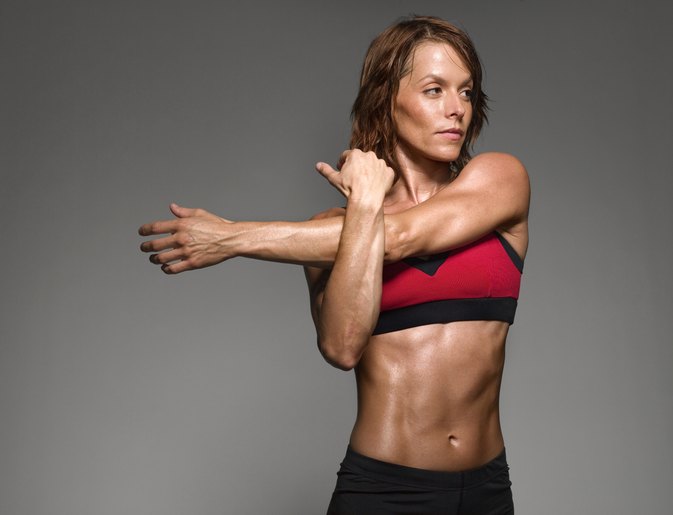How to Lose Fat and Keep It Off: For Beginners
In case you’re too busy to read – what’s inside:
- Burning more calories than you eat = weight loss.
- Weight in conjunction with high enough protein intake and strength train = fat loss
- The most important variable in weight loss is controlling how much you eat
- “Diets” are short-term fixes but your long-term habit changes dictates the results you keep
- The metabolism can slow down. Adjustments and breaks are your tools around this fact.
- Adding more muscle overtime is a pretty good strategy to keep lean while allowing you to eat more
We’ve all been there.
I just know you’re confused.
You’ve got that same fat you hate –and it’s been there for years. Even worse, maybe you’ve kinda gotten rid of some of it, but then it came back. Even more worse, you probably gained more of it.
You’re fed a diet plan with promises. Great. Then you’re fed another one only to leave you confused and motionless.
Here’s my promise:
This stuff is actually very simple. It really is. No scientific lingo either – I’ll just describe it in words you can understand very easily.
Before I get into it I want you to know I’m not a PhD, a doctor, a physiologist or a researcher. I’m nothing more than a guy who found every way to screw it up only to find ways that work and an ability to explain it in words you’ll probably understand. Now I coach people to do the same without magic tricks, special supplements or rigid plans.
Is it really just calories in and calories out?

It isn’t. But for the love of god, if you could just ignore the rest of it and accept that when it comes down to it – bottom line – it really is *mostly* just calories in calories out.
Why? Because if you aren’t losing fat effectively the absolute most likely reason is because you’re consuming more calories than you burn. The further you accept there’s no argument against that the better you’ll be.
You really think you nailed it or the last month but didn’t lose any weight? Maybe you start looking for other answers like fat burners, or a new diet– or maybe you just exercise even harder. I strongly suggest you just accept that you didn’t actually expend more energy (calories consumed) than you burned off.
So how do I burn energy/calories?

Out of fear that I’m encouraging you to start hitting the cardio and exercising 7 days a week in an effort to burn as many calories as possible, just know this: controlling calories/energy consumed is far and away the difference maker here. Exercise’s primary purpose is not to burn calories, so don’t use it for that. Exercise has so many other benefits you should be after.
James Fell sums it up nicely here:
“Note that the most important and largest effect of exercise comes in terms of improving physical performance. You get a training effect, and this is awesome. Second most important is that it builds up your overall health-specific willpower. Stress goes down and ability to make healthier and calorie-aware food choices go up.“
You may have even experienced that last underlined point before — you just do better with food when exercising. They go together really nicely.
So How Are Calories Burned:
Resting Metabolic Rate (The Significant Amount of Calories Your Body Burns While You’re Chilling):
These are the calories your body burns just to keep you alive. All your bodily functions require the use of energy to happen — things like heart pumping, functions of your cells and keeping your body temperature normal.
I cannot overstate enough that this is probably going to be responsible for most of your calories burned. Unless, of course, you’re a serious athlete or you lay bricks or something like that.
I hope that makes you realize the biggest player in your weight loss is typically going to be the decisions you make with food consumed – you have big time control over this variable.
Although there is some argument that RMR isn’t totally fixed and fluctuates with how balanced your hormones are — relating to health status, the food you eat and sleep. All things held equal, it’s pretty fixed as long as your healthy.
I rarely calculate RMR, but if you want to, go HERE (scroll down a bit). I’ll give you how I come up with client calorie numbers (if we do it that way) below.
Thermic Effect Of Food (How Much Your Body Burns As a Result of Processing What You Eat):
It’s certainly true that a portion of the calories you burn come from the calories/energy burned off from eating food itself. Sounds like a win right?. It’s certainly true that digesting protein kills up a little more energy/calories than carbs and fat, but it isn’t worth thinking too much about. There are plenty of better reasons to eat more protein — and I just don’t want you thinking that eating 400 grams of protein daily is gonna make a difference compared to 150.
All that’ll do is make you hate chicken.
My advice is pay little attention to this.
Non-Exercise Activity Thermogenesis (Movement That Isn’t Really “Exercise”):
Walking, job-related movement fidgeting, boning and house chores. Stuff like that. Basically just stuff that’s burning calories above resting metabolic rate (what you burn just keeping your body alive) that isn’t exercise.
There could be some massive differences from person to person – like, a desk worker will burn hundreds (maybe over a thousand) less per day than a labourer.
I don’t suggest you get too finicky about calculations on this point, but I will tell you I do pay attention to what my clients do for a living. I just wouldn’t suggest trying to make calculations. Separating desk job (low), walking job (moderate) and a labour job (high) is all you really need to pay attention to.
The same calorie consumption, all other things held equal, the labourer may lose 1.5-2 pounds a week whereas someone sitting at a desk may lose 0.5-1.
In the end, this is good information, but it isn’t worth pulling out some sort of special formula for.
Exercise Thermogenesis (Calories Burned From Exercise):
This is pretty standard when it comes to clients of mine because I know how much they’re moving. Programs are certainly individualized and some do go a bit above and beyond, but really, the differences aren’t massive and I generally know how much energy/calories they’re burning from exercise.
But as I said earlier, I barely even consider the calories burned from exercise just because I want people focusing on the other benefits.Truthfully, most people who have weight to lose are overeating to such a degree that when you put them in a normal range between around 11-14x their bodyweight, they drop pounds.
Exercise burns calories, intense exercise burns more. But I wouldn’t suggest you find the most intense exercise just because it uses the most energy/calories. If you like hill sprints, go for it. If you don’t, good luck sticking to it.
The key with exercise isn’t to consider it’s calorie burning effect, it’s to find something you’ll consistently do because you like it and it’s benefits.
So, just to make sure we’re all clear – how is weight lost?
When (RMR+TEF+NEAT+ Expenditure from Exercise) equals more than calories consumed, you lose weight. ALWAYS.
Sure, the scale fluctuates for all kinds of reasons, but on average, when calories consumed is less than calories burned, you lose weight.
That’s it.
In even simpler terms, your body is a collection of energy – for our sake, lets only distinguish fat and muscle. When the body consumes too much energy, the excess is left on the body as weight – again, for our sake, muscle or fat.
When it consumes too little energy/calories from, it must resort to supporting itself with energy/calories off itself. When it does that, you lose weight.
How do you make sure it’s fat coming off and not muscle?
Now, I bet you actually want to get leaner — not just lose weight.
If you allow the body to lose muscle while eating less calories than you burn, you won’t really get leaner, you’ll just get smaller. Trust me, this isn’t what you’re looking for.
Good news is there are scientifically proven ways to make sure the body burns fat while you keep your muscle. This results in more muscle tone, definition, shape, or whatever word you use for that image you have in your head.
There are two primary players:
- Strength training
- How much protein you eat
1. Strength Training

I don’t think you need to confuse this part too much, but I will say I do prefer to use lower reps (and heavier weight) for most individuals while they cut fat. I don’t think it’s the only way but it does certainly work and it isn’t what you’re normally told.
You’re told to sweat as much as possible. And you’re better off using strength training to keep muscle while losing weight.
If you can get stronger when you drop fat – and you can, and should – then you can ascertain pretty well that you very likely aren’t losing any muscle. It’s when strength starts to drop off for no apparent reason that you have to start assuming you are.
Muscle isn’t the only determinant of strength – the efficiency of how you nervous system coordinates muscle actions is a major player (especially for beginners).
So, if your interests fall inside the realm of “I’d like to lose body fat”, I suggest you stimulate those muscles enough so that they see a reason to stick around when you’re giving your body less food.
The body will look for every reason to drop the muscle if you don’t give it enough reason not to.
Why?
Because the body is logical like that.
So get used to your deadlifts, squats, presses (like bench presses and other stuff), rows, carries and all kinds of other moves that stimulate the whole body because that’s what’s going to drive metabolism up, make better use of your limited time in the gym and, most of all, drive the message home that you need the muscle.
How heavy? I’d suggest whatever you do, you go heavy enough that it feels heavy. I suggest you aim to get stronger. Cuz why not?
2. Protein Intake

The research isn’t totally conclusive on this one but it appears that results happen best at 0.75 grams per pound of bodyweight — or more.
In physique development realms the rule of thumb is 1 gram of protein per pound of bodyweight. I’d say 1 gram per pound of ideal bodyweight could be useful for many as well.
Right, that’s a lot of protein. But look it at this way:
If a 200 pound person needs to eat around 2000 calories on average to lose weight – usually accurate FYI – that means this person should probably eat, at minimum, 150 grams of protein (I’d suggest more, but we’ll stick there).
150 x 4 = 600 calories from protein (each gram of protein is 4 calories).
So, although it may sound like you need to eat tons of protein, you’re actually leaving 70% of the rest of your calorie space for fat, carbs and however much you drink – alcohol are calories too.
Truthfully, my guess: if you think this is an unreasonable amount of protein it’s probably only because protein mostly needs to be prepared/cooked and you may be prone to eating fast and cheap.
So, if you want to get lean and healthy, stop that.
Diets Don’t Work –or do they?

I read stuff about fitness all the time – have since I was about 14. One thing that often gave me trouble was this idea that diets don’t work.
Diets do work —temporarily.
If you want to get technical on me, I know “diet” means what you eat. But for the sake of sticking with the way you usually use and hear the term “diet”, it means eating differently — usually for weight loss.
And it usually coincides with restriction, rigidity and really boring meals.
So, again, they work if you do it right but only temporarily because you can’t “diet” forever.
That photoshopped model on the cover of Shape or Men’s Health or whatever definitely used a “diet” to prepare for those shots – among other things. And afterward they probably mixed in a little more taste, more potatoes with butter, more other stuff and, almost certainly, probably some ice cream and cake here and there too.
That person that went from 300 pounds to 250 in 4 months – totally possible by the way – probably used a “diet” to do so and will only keep the weight off if long-term habits change.
So, the cover model uses a diet (and other things) to get in shape for pictures, then loses it. The eating habits that model reverts to isnot a “diet”.
What about starvation mode? Or this idea that metabolism can slow down?

It’s true. And while I know I’m adding a wrinkle into the equation – the fact your metabolism changes – the truth is unless you’re truly sick, the only way this happens is if you’ve already lost a bunch of weight.
So, if you’re otherwise healthy and your convinced you can’t lose weight despite the fact you know you should be losing weight, the only answer I have for you is you think you’re eating less than you actually are.
So yeah, the metabolism can slow down. Your body, that logical SOB I mentioned earlier, is clever and when it sees it’s not getting much food, it slows down its use of it. Remember, your metabolism is related to how much your body is using energy, so if your body isn’t consuming enough, the body will down regulate its use of it.
Survival purposes or something annoying like that – especially when it comes to your goal of losing belly fat.
Take this example to understand how to work around this issue.
A 200 pound person adjusts his/her calorie intake low enough to lose 28 pounds over 6 months. In months 1 and 2, this person loses 2 pounds per week (16 pounds). In months 3 and 4, as the metabolism starts to slow a little, this person loses 1 pound per week (8 more pounds).
In months 5 and 6 the average was down to 0.5 pounds per week (4 more pounds).
This is assuming that the calories eaten (and burned) were, with precise calculation, stable from start to finish. Obviously not realistic, but for the sake of your understanding…
Like a thermometer, the metabolism slid downward gradually and the calorie deficit created worked less and less as time went on.
Lets say this person, now leaner and 172 pounds – especially if they strength trained and ate more protein – still wanted to go further. What do they do?
Eat less, probably. Or maybe add in a little more light cardio to kill a few more calories.
That’ll work for sure.
But eventually it won’t. Not because the metabolism will eventually go so low that weight loss is impossible…but because at some point the metabolism will drop so low that you essentially have to eat so little food to lose weight you’re now putting health, energy, hormones, mood at risk because you’re not getting enough nutrients.
So what’s your next play?
Take a Break (short or long-term)

Losing weight may be a great thing for you to do, but the act of losing weight long-term and doing what needs to be done – namely, eating less – it can be hard on your body. Especially if you’re trying to do it a little faster.
In order to give you a break, both psychologically and physiologically, you need to start eating more. When it comes to my clients, I actually find myself coaching more, because this is where long-term habit changes come into play. Tendency for many at this time is to go back to old habits and see some rapid weight gain.
I wouldn’t suggest you go anything beyond 8 months of weight loss efforts without a long-term break. In most cases, I’d suggest you slowly up training volume and slowly add some weight and try and make the weight gain as muscular as possible. More on that later.
So, taking our example who probably eventually got down to around 160 pounds (from 200), lets say over the course of 6-8 months our example adds 15 pounds (to 175) but adds like 6-10 pounds of muscle, which is pretty solid — pun intended.
Our example can then, with more muscle mass, at 175 start cutting down again. Coming from experience myself and coaching people through this…this is the fun part.
An Important Note About How the Metabolism Changes
I’ll let the people from Precision Nutrition (article in link) take this one. I’ll have a note for underneath — a personal anecdote for how I deal with this.
Unfortunately, because of this adaptive response, someone who has dieted down will often require 5-15 percent fewer calories per day to maintain the weight and physical activity level than someone who has always been that weight.
(Or even less, potentially, because as we learned in the very beginning, the RMR of people of the exact same age/weight/etc. can still vary by up to another 15 percent.)
This means someone who was never overweight might need 2,500 calories to maintain their weight, while someone who had to diet down to that weight may need only 2,125-2,375 calories to hold steady.
We don’t know how long this lowered energy expenditure lasts. Studies have shown that it can hang around for up to 7 years after weight loss (or more, 7 years is as far as it’s been studied). This likely means it’s permanent, or at least persistent.
SEVEN FUCKING YEARS? PERMANENT? WTF.
I think there’s more to the topic than told here, but it’s interesting and something you’ll need to understand. I think for you it’s going to mean that period after dieting will need to be a careful one. If you revert back to old ways, you will not only revert back, you will likely revert back very quickly. I’ve seen this happen plenty.
A Personal Anecdote:
I often joke that I have the appetite of a 300 pound person — and there’s some truth to that. Realistically, I probably have the the natural appetite of someone who’s about 6’1 (my height) and 200-210 pounds. At the time of this writing I weigh about 190 pounds and am fairly lean. If I drop another 10-12 pounds I’ll probably be around the leanness that I’d like to maintain. I may go deeper than that just for the challenge and something to write about but lets ignore that for second.
Back to my appetite.
I just don’t think it’s realistic for me to ever say I’m going to maintain a weight of 180 pounds. I mean, if you wanna drop a bunch of weight and maintain that weight, go for it. Just understand there’s a good chance you’ll have to learn to eat less over the long-term – and as Precision suggests, probably less than you’re friend who’s that weight but has always been lean.
A Case For More Muscle, Strength and Exercise

It doesn’t have to be your solution, but I know that if I’m going to accept that I’m probably destined to be at least 195 pounds, I’m going to have to accept in order to be lean at that weight I’m going to have to progressively add muscle over time. It would probably benefit to me to be able to increase the amount of work I can do byway of increasing my strength and my conditioning.
The more conditioned and strong you are, the more you calories you’ll burn per minute, hour or workout. This takes time, but it can keep happening.
There’s a good chance you’ll benefit from adding a good 5-20 pounds of muscle. Not just because you’ll look more defined and toned up, but because the muscle in the right places will help your joints, improve your confidence and other things on top of allowing you to eat more food without getting fat.
So yeah, it’s kinda doom and gloom that maintaining a 180 pound body after years of being between 200-220 will likely be tougher than a friend of mine who’s always been there….so I don’t intend to stay at 180 pounds.
In short, my response to the adaptation my metabolism can go through with weight loss is to add muscle over time, so I can eat the amount I want to eat. Not a bad idea for you either — don’t worry, neither of us will come serious bodybuilders by accident.
Take Home Points
To lose weight you need to burn more calories than you consume through food. This is physics, this is calories in and calories out — and this is always true. Although exercise and non-exercise movement are players here, your biggest move is controlling calories consumed.
How: If you’re active, an easy bet to lose weight is, on average, 10-13x your bodyweight in calories daily. Remember I said average…if you consume 1400 calories daily and then consume 7000 calories on Friday and Saturday combined then you absolutely did not average 1400 calories a day. People make this mistake all the time.
If you set out to eat X calories a day and then “took it easy on the weekends”, you ate X calories a day + “whatever taking it easy on the weekends means”.
To lose fat you must teach the body to choose fat and not muscle. You do this with strength training and higher protein intakes. Strength training stimulates the muscle, and muscle is made of protein. This is all true and very clear in the science. Call it conclusive evidence. Put it on the board, if you will.
How: Chances are 0.75 grams of protein per pound of bodyweight will do you well, but I’d suggest more to be safe, and because it’s gonna keep you full. And strength training? Get stronger in deadlifts variations, squat variations, presses, rows and consider making some circuits with them with smaller rest periods too. I like a combination of strength work and “cardio with weights”. I don’t mean, running with weights — I mean strength training circuits done with little rest, so it feels like cardio.
Your metabolism will shift. It’s entirely normal that you’ll have to eat less as you lose weight in order to continue the pace of your weight loss.
How? Your best bets to deal with this are periodic breaks in trying to lose weight (sometimes these happen naturally). This gives you a psychological break and allows hormones to adjust.
Also know that you will very likely have to make some concerted efforts to adjust the amount you eat for the rest of your life to keep that weight. However, if it’s leanness and tone you’re most concerned with, adding muscle and increasing the amount of calories you burn in exercise through strength and conditioning will progressively help you stay lean. I bet this is most realistic for you – it sure as hell is for me.
It might be more realistic for you to aim to keep the fat off long-term and not the weight. So yeah, more muscle.
Just know, muscle doesn’t grow quickly, so this isn’t a free pass to just go back to old eating habits.
Free Cheatsheet Below:
